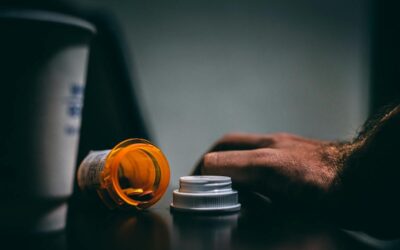Understanding the Average Costs of Full Day PHP Addiction Treatment in Massachusetts Explained
In Massachusetts, full day Partial Hospitalization Programs (PHP) offer individuals battling addiction an intensive treatment that bridges the gap between inpatient care and standard outpatient programs. This treatment provides a structured, supportive environment with comprehensive therapy sessions, group counseling, and individual support while allowing patients to return home in the evenings. For families facing drug and alcohol addiction, understanding the cost structures and influencing factors is essential for making informed treatment decisions.
PHP not only offers clinical benefits—such as personalized therapeutic interventions, state-of-the-art facility amenities, and expert staff—but also provides a robust framework that minimizes relapse through continuous engagement. By addressing multiple facets of addiction, including psychological, physical, and social aspects, full day PHPs enable individuals to rebuild their lives gradually while managing daily responsibilities. In Massachusetts, where quality addiction treatment is crucial, the cost of these programs reflects a complex interplay between regional economics, insurance policies, and service variations.
Many prospective patients and families encounter varying pricing models and financing options that can create uncertainty about true treatment costs. This article explores the intricacies of PHP addiction treatment expenses in Massachusetts by breaking down the core components of full day PHPs, reviewing average cost ranges, discussing the primary cost drivers, and outlining financial strategies and insurance options to manage these expenses. The following sections provide a meticulous exploration of every aspect associated with full day PHP addiction treatment costs in Massachusetts.
Defining Full Day Partial Hospitalization Programs and Their Core Components
Understanding full day Partial Hospitalization Programs (PHP) is essential for evaluating the role they play in structured addiction recovery. PHPs deliver intensive clinical services during the day without overnight stays, allowing patients to benefit from robust therapeutic interventions while maintaining independent living arrangements.
What a Full Day PHP Involves for Addiction Recovery Support
A full day PHP for addiction recovery typically includes:
- Individualized Assessment: An initial intake customizes the treatment plan based on unique physical and psychological needs.
- Evidence-Based Therapies: Multiple sessions per day using methodologies such as Cognitive Behavioral Therapy (CBT) and Dialectical Behavior Therapy (DBT).
- Group Counseling and Family Therapy: Sessions designed to foster peer support, reduce isolation, and promote collective healing.
- Medication Management and Continuous Monitoring: Supervision by experienced clinicians with real-time adjustments to treatment.
The program addresses both medical and psychosocial aspects through activities such as mindfulness, stress reduction, relapse prevention planning, and psychoeducation. This comprehensive support accelerates recovery while instilling personal responsibility and self-management skills. PHPs also allow patients to maintain social connections and continue work or school responsibilities, creating an optimal environment where learning, healing, and reintegration occur simultaneously.
Therapeutic Services Typically Included in PHP
Therapeutic services in PHP addiction treatment are diverse and tailored to meet multifaceted challenges:
- Individual Therapy: To address trauma, anxiety, depression, and other co-occurring issues.
- Group Counseling: Encourages peer support and social accountability.
- Family Therapy: Helps resolve conflicts and rebuild trust by involving family members.
- Adjunctive Therapies: These may include art therapy, music therapy, and mindfulness-based stress reduction techniques.
- Medication Management: Monitors pharmacological interventions (e.g., naltrexone) for effectiveness.
These therapies work synergistically to create a comprehensive treatment plan that targets both the immediate symptoms and root causes of addiction.
Standard Duration and Daily Schedule of Full Day PHP
Full day PHPs are typically structured to run for several weeks to months, depending on the patient’s recovery needs. A typical day may include:
- Morning Check-ins: To assess emotional and physical status.
- Therapy Sessions: A mix of individual, group, and family sessions covering 4–8 hours daily.
- Educational Workshops and Skill-Building Activities: Designed to enhance coping strategies and relapse prevention.
- Scheduled Breaks: For meals, relaxation, and mindfulness exercises to reduce anxiety.
In Massachusetts, many programs recommend attending sessions five days a week for four to six weeks, though the duration may be adjusted based on individual progress. A predictable, structured schedule reinforces normalcy and discipline, contributing to improved mood regulation, cognitive function, and adherence to treatment protocols.
How PHP Differs From Residential and Standard Outpatient Programs
Full day PHP treatment stands apart from both residential and standard outpatient programs by offering an intensive yet flexible model:
- Residential Treatment: Involves 24-hour supervision and removal from one’s usual environment. PHP, by contrast, allows patients to return home each evening, reducing overall cost and easing the transition back to daily life.
- Standard Outpatient Programs: Typically involve once or twice weekly sessions. PHPs provide multiple sessions per day, ensuring continuous engagement and a more robust support system.
PHPs effectively bridge the gap between inpatient and outpatient care, offering comprehensive, multi-faceted support while accommodating patients with work, school, or family responsibilities.
What Is the Average Cost of Full Day PHP Addiction Treatment in Massachusetts?
The cost of full day PHP addiction treatment in Massachusetts is influenced by service intensity, regional differences, and specific program requirements. Typically, programs are priced within a competitive range that reflects high-quality care and advanced therapeutic interventions offered by state-of-the-art facilities.
General Price Ranges for Full Day PHP Services in Massachusetts
On average, full day PHP programs range from approximately $800 to $1,500 per day. This daily cost typically includes:
- Therapy Sessions: Individual, group, and family counseling.
- Medication Management: Ongoing adjustments and supervision.
- Ancillary Services: Additional treatments like art or music therapy may be included.
Many centers offer package deals or sliding scale pricing based on a patient’s financial situation or insurance coverage. Some programs, particularly in urban areas or near Greater Boston, may have higher operational costs, resulting in higher daily rates. Overall treatment costs for a typical four-to-six week course can range between $25,000 and $60,000. These figures must be weighed against the long-term savings achieved by preventing relapse and reducing future healthcare expenses.
Examining Geographic Cost Differences for PHP Within Massachusetts
Geographic differences significantly affect PHP costs:
- Urban vs. Rural Areas: Treatment centers in metropolitan areas like Boston generally have higher operating costs due to factors like rent and staff salaries. As a result, these centers may charge 10–20% more than facilities in less urbanized areas.
- Enhanced Amenities: Urban centers may offer additional amenities and advanced therapeutic services, justifying the elevated prices.
Prospective patients should consider what is included in the pricing and whether the higher cost yields improved treatment quality and aftercare.
A Look at Massachusetts PHP Rates Compared to Other States
Massachusetts PHP treatment rates are generally aligned with nationwide averages but tend to be slightly higher due to the high cost-of-living and stringent accreditation standards. While states in the Midwest or South may have lower operational costs, Massachusetts often positions itself as a premium option with superior clinical outcomes and patient satisfaction.
Components Factoring Into the Average Full Day PHP Treatment Price in Massachusetts
Key factors that affect the overall cost include: – Program Duration: Longer treatment courses naturally incur higher costs.
- Service Intensity: More intensive therapy sessions and specialized treatment options increase costs.
- Facility Amenities: High-end facilities with modern amenities tend to charge more.
- Staff Expertise: Highly experienced and specialized clinical staff command higher salaries.
- Administrative and Licensing Costs: Overhead expenses are built into the daily rate.
Together, these factors justify the overall expenditure as they correlate with improved health outcomes and reduced relapse incidence.
Primary Factors Influencing Your Full Day PHP Addiction Treatment Costs
Multiple primary factors uniquely impact the overall cost of full day PHP addiction treatment. Understanding these cost drivers helps patients and families make informed decisions.
The Role of Program Length in Total PHP Treatment Expenses
The duration of treatment is a significant cost driver:
- Longer Duration, Higher Cost: Extended treatment periods result in higher total costs due to more hours of therapy and additional service fees (e.g., initial assessments, mid-program reviews, and discharge planning).
- Efficiency Through Tailoring: Working closely with providers to determine the right length of treatment can help balance clinical efficacy with financial sustainability.
How Specialized Therapies Affect the Overall Price of PHP
Specialized therapies contribute significantly to overall expenses:
- Advanced Treatment Modalities: Services such as trauma-focused therapy, Medication-Assisted Treatment (MAT) using medications like naltrexone, and integrative holistic approaches require dedicated resources and specialized equipment.
- Smaller Group Sizes: To ensure personalization, some therapies limit group sizes, increasing the staff-to-patient ratio and overall cost.
- Investment in Improved Outcomes: Although these therapies raise initial costs, they often lead to better long-term results and reduced relapse rates, offering substantial savings over time.
Facility Amenities and Location Impact on Treatment Program Costs
Facility location and amenities play a major role:
- Urban Facilities: Centers in areas like Greater Boston often charge more due to higher operational expenses, enhanced aftercare programs, and superior amenities.
- Rural or Suburban Centers: These may offer lower daily rates while still maintaining high care standards.
- Infrastructure and Services: Quality patient lounges, nutritious meal planning, and specialized recreational therapy contribute to the cost structure.
The Influence of Staff Expertise and Support Ratios on Expenses
The qualifications of the clinical team affect costs:
- High-Level Expertise: Experienced clinicians and therapists demand higher salaries, which are reflected in treatment costs.
- Low Staff-to-Patient Ratio: Ensuring personalized care and continuous monitoring requires more staff, increasing operational expenditures.
- Direct Impact on Outcomes: Superior staff expertise often results in better recovery rates and lower relapse, justifying the associated expense.
Additional Services That Can Affect Your Total PHP Costs
Beyond core treatments, several additional services may add to the total cost:
- Specialized Testing and Genetic Profiling: For personalized medication management.
- Extended Aftercare Planning: Helps ensure sustainable recovery post-treatment.
- Alternative Therapies: Options like yoga, nutrition counseling, or mindfulness sessions add incremental costs.
- Administrative Fees: Charges for program orientation, periodic evaluations, and documentation.
These additional services provide comprehensive support but also increase the overall financial commitment.
Using Insurance to Cover Full Day PHP Addiction Treatment Expenses
Insurance plays a crucial role in mitigating high treatment costs. In Massachusetts, many insurance providers cover a significant portion of PHP expenses under plans that include addiction treatment and behavioral health services.
Confirming Your Insurance Plan’s Coverage for PHP
Patients should take the following steps: – Review Policy Documents: Confirm if your health insurance plan covers PHP services.
- Verify In-Network Status: Ensure that the chosen treatment facility is within your insurance provider’s network to benefit from negotiated rates.
- Clarify Payment Details: Understand your co-pays, deductibles, and coinsurance responsibilities to avoid unexpected expenses.
- Obtain Necessary Approvals: Work with the treatment center’s billing department to secure pre-authorizations or referrals when needed.
Frequent Questions About Insurance for PHP Addiction Programs
Common questions and concerns include: – What documents are required to verify PHP eligibility? – How do deductibles and coinsurance impact overall costs? – What are the requirements for pre-approval or handling out-of-network charges? Providers often supply written guidelines outlining the insurance claims process, reimbursement timelines, and steps to resolve any coverage issues.
Cost Implications of In-Network Versus Out-of-Network PHP Facilities
The network status of a facility is critical:
- In-Network Benefits: Lower out-of-pocket costs due to pre-negotiated rates.
- Out-of-Network Penalties: Higher charges, increased deductibles, and more complex billing can result in cost increases of 20–30%.
Patients should carefully check provider directories and verify network status before seeking treatment.
Making Sense of Deductibles, Coinsurance, and Maximum Out-of-Pocket Payments
Understanding financial terms is key: – Deductible: The amount you pay before insurance coverage begins.
- Coinsurance: The percentage of costs you pay after meeting the deductible.
- Maximum Out-of-Pocket: The cap on your annual expenses. Review your Summary of Benefits and Coverage (SBC) to effectively budget and manage these costs.
Steps to Address Insurance Denials for PHP Care
If your insurance denies coverage, take these steps:
- Review the Denial Letter: Understand the cited reasons.
- Discuss with Your Provider: Work with the billing department to gather additional documentation.
- File an Appeal: Submit a formal appeal with all necessary clinical assessments and progress reports.
- Consider Advocacy: Legal assistance or a patient advocate specializing in insurance matters can help resolve issues.
Financial Strategies for Managing Full Day PHP Addiction Treatment Payments
Managing treatment costs involves multiple financial strategies. Families and patients in Massachusetts can explore various options to reduce out-of-pocket expenses while securing quality care.
Investigating Payment Arrangements With Treatment Providers
Many treatment centers offer flexible financial options:
- Extended Payment Plans and Installments: Spread the cost over time.
- Sliding Scale Fees: Adjusted based on income and financial circumstances.
- Upfront Negotiations: Some centers may allow reduced upfront payments or deferred fees after specific treatment phases. Request a detailed written breakdown of costs and financing options to help plan your budget.
Securing Healthcare Loans or Financing Options for Treatment
Healthcare loans or specialized financing can be useful:
- Tailored Loans: Some financial institutions and nonprofit organizations offer loans specifically for medical and addiction treatment costs.
- Favorable Terms: Often lower interest rates and favorable repayment schedules compared to traditional consumer loans. Consult with your provider and research state-specific programs in Massachusetts for low-interest loans, grants, or deferred payment options.
Finding Potential Grants or Scholarships for Addiction Care
Explore financial aid through: – Nonprofit Organizations: Many offer grants or scholarships for addiction treatment.
- Government Programs: State and local programs may provide financial assistance.
- Multiple Applications: Applying for several grants can help significantly offset treatment costs. Your treatment center may also assist in identifying and applying for these opportunities.
Applying Health Savings Account or Flexible Spending Account Funds
If you have access to employer-sponsored benefits:
- HSAs and FSAs: Use pre-tax dollars to pay for qualified medical expenses, including PHP treatment.
- Tax Savings: These accounts can reduce your overall treatment expense. Review your benefit details and consult a financial advisor to maximize these funds.
Obtaining Support From Charitable Foundations or Organizations
Charitable foundations and nonprofits often provide:
- Subsidized Rates or Grants: Financial assistance specifically for addiction treatment.
- Partnerships with Treatment Centers: Some centers work with charitable entities to streamline the application process. Research local and national organizations focused on substance abuse recovery to help lessen the financial burden.
Recognizing the Lasting Worth of Your Investment in PHP Treatment
Investing in full day PHP addiction treatment is not merely an expense but a critical investment in long-term health and well-being. While the upfront costs may seem high, successful PHP treatment can reduce future healthcare expenditures, improve overall quality of life, and prevent additional financial losses related to untreated addiction.
Contrasting Treatment Expenses With the Financial Burden of Active Addiction
Active addiction can lead to significant, recurring costs such as:
- Lost Productivity and Legal Fees– Higher Hospital Readmissions and Health Deterioration Investing in PHP treatment can mitigate these costs by preventing relapse and reducing the long-term financial burden on families.
How PHP Fosters Long-Term Sobriety and Minimizes Relapse
PHP treatment equips individuals with essential skills:
– Coping Strategies and Stress Management– Relapse Prevention Skills The resulting long-term sobriety reduces dependency on costly emergency services and repeated hospitalizations, thereby lowering future treatment expenses.
Enhanced Well-Being as a Significant Outcome of Treatment Expenditure
Successful recovery leads to:
– Improved Emotional and Physical Health– Restored Family Relationships and Social Functioning These improvements not only enhance quality of life but also contribute to better career stability and reduced future healthcare costs.
The Financial Upsides Associated With Successful Recovery
The financial benefits of PHP treatment include:
– Decreased Future Medical Costs– Lower Legal and Social Service Expenses– Improved Productivity and Earning Potential When compared to the ongoing financial drain of untreated addiction, PHP treatment offers a strong return on investment and supports a sustainable future.
Frequently Asked Questions
Q: What makes full day PHP treatment more effective than standard outpatient programs?
A: Full day PHP treatment is more effective because it offers an intensive, structured schedule with multiple therapeutic sessions per day. This enhances patient engagement, reduces relapse rates, and provides continuous support through individual therapy, group counseling, family therapy, and medication management—significantly improving outcomes compared to standard outpatient programs.
Q: How do insurance policies typically cover PHP treatment costs in Massachusetts?
A: Most comprehensive insurance plans, including those from providers like Aetna and Cigna, cover PHP treatment as part of their behavioral health benefits. Coverage varies based on whether the facility is in-network and on specific policy details such as deductibles, coinsurance, and maximum out-of-pocket limits. It is important for patients to verify benefits in advance and obtain necessary pre-authorizations.
Q: What are the primary factors that influence the cost of full day PHP programs?
A: The primary factors include the duration of treatment, the intensity of specialized therapies provided (e.g., MAT with naltrexone), facility amenities and location (with urban centers like Greater Boston typically costing more), and the expertise and support ratios of the clinical staff. Each factor contributes to the overall variation in program costs.
Q: Can financial assistance or insurance financing options significantly reduce out-of-pocket costs for PHP treatment?
A: Yes, many patients benefit from flexible payment arrangements, healthcare loans, and the use of Health Savings Accounts (HSAs) or Flexible Spending Accounts (FSAs). Additionally, some treatment centers offer sliding scale fees and may connect patients with grants or charitable foundations to help offset costs.
Q: Why is investing in full day PHP treatment considered a long-term financial benefit?
A: Investing in full day PHP treatment is considered a long-term benefit because it reduces recurring costs associated with active addiction, such as emergency care, legal expenses, and lost productivity. The intensive nature of PHP treatment improves long-term sobriety rates, which lowers overall healthcare and social costs while enhancing quality of life and earning potential.



